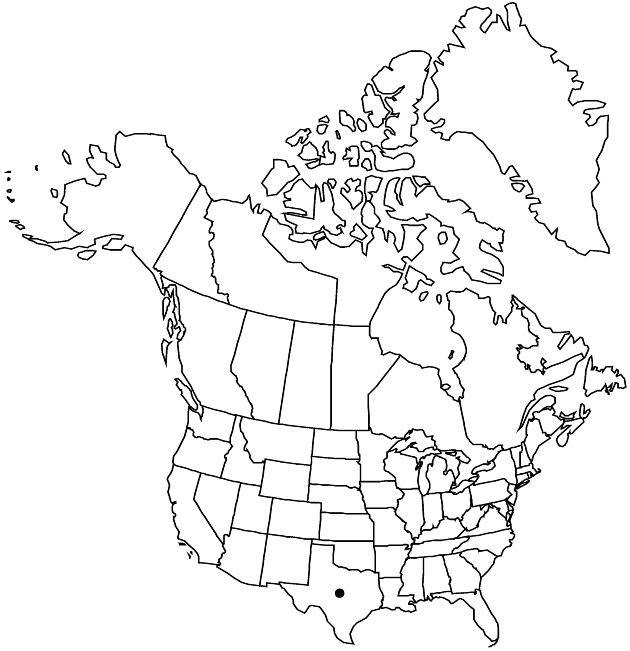Difference between revisions of "Isocoma coronopifolia"
Erythea 2: 111. 1894.
FNA>Volume Importer |
imported>Volume Importer |
||
| (2 intermediate revisions by 2 users not shown) | |||
| Line 61: | Line 61: | ||
|publication year=1894 | |publication year=1894 | ||
|special status= | |special status= | ||
| − | |source xml=https:// | + | |source xml=https://bitbucket.org/aafc-mbb/fna-data-curation/src/2e0870ddd59836b60bcf96646a41e87ea5a5943a/coarse_grained_fna_xml/V19-20-21/V20_1021.xml |
|tribe=Asteraceae tribe Astereae | |tribe=Asteraceae tribe Astereae | ||
|genus=Isocoma | |genus=Isocoma | ||
Latest revision as of 19:58, 5 November 2020
Herbage usually glabrous, leaves never stipitate-glandular, almost always resinous. Leaf blades oblanceolate, 15–30(–50) mm, margins usually pinnatifid (lobes in 1–3 pairs, spreading, linear, apically spinescent), sometimes entire or only proximal leaves pinnatifid. Involucres 5–6(–7) × 2.5–4 mm. Phyllary apices green to greenish yellow or yellowish (markedly thickened), not aristate, slightly or not gland-dotted, without resin pockets. Florets 12–15; corollas 4.5–6 mm. Cypsela ribs not forming hornlike extensions. 2n = 12.
Phenology: Flowering (May–)Jun–Oct.
Habitat: Alkaline sandy flats, matorral, shrublands
Elevation: 200–500 m
Distribution

Tex., Mexico (Coahuila, Nuevo León, Tamaulipas).
Discussion
Populations with at least the distal leaves entire have been called Isocoma pedicellata, and these apparently segregate geographically, at least to some extent (G. L. Nesom 1991c). Some plants have both entire and pinnatifid leaves; the distinction does not appear to warrant formal recognition.
Selected References
None.